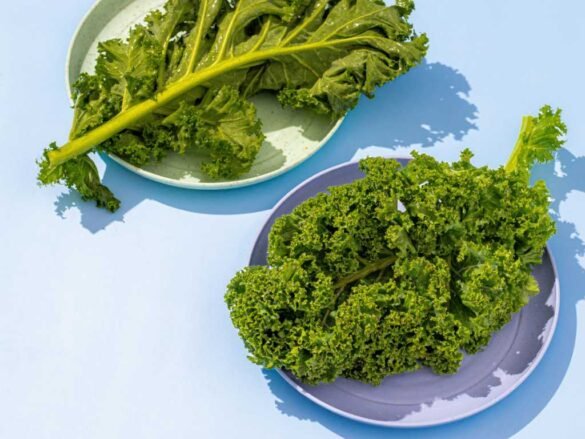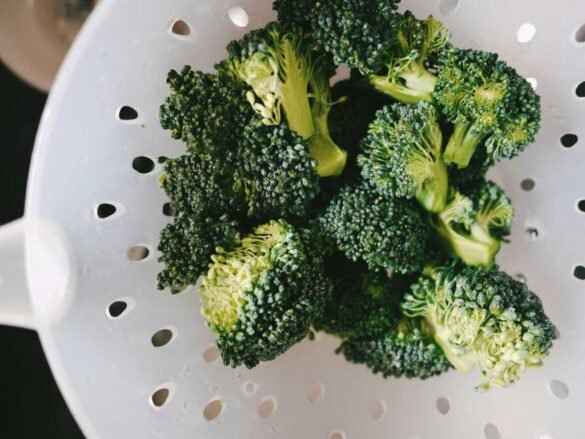Ever wonder why some people seem to have that natural glow while others struggle with dull, tired-looking skin? The secret might be simpler than you think. Vitamins for skin aren’t just another beauty trend – they’re the foundation of healthy, radiant skin that comes from within. Your skin is your body’s largest organ, and just like any other part of your body, it needs proper nutrition to function at its best.
Think about it: when you’re under the weather, your skin shows it. When you’re stressed, dehydrated, or not eating well, your complexion tells the story. That’s because your skin is constantly working – regenerating, protecting, and healing – and it needs the right fuel to do its job effectively.
Why Your Skin Craves Vitamins
Your skin is like a busy factory that never stops working. It’s constantly producing new cells, fighting off environmental damage, and maintaining its protective barrier. But here’s the thing – this process requires specific nutrients to work properly. When your skin doesn’t get the vitamins for skin health it needs, you’ll notice the difference pretty quickly.
Deficiency symptoms aren’t subtle. You might see increased dryness, more pronounced fine lines, slower healing of minor cuts or blemishes, and that overall lackluster appearance that no amount of makeup seems to fix. Some people develop rough, bumpy patches or notice their skin becoming more sensitive to products they’ve used for years.
The good news? Once you understand which vitamins your skin needs and how to get them, you can start seeing improvements in just a few weeks. Research shows that proper nutrition plays a crucial role in skin health, affecting everything from collagen production to wound healing.
The Power Players: 6 Essential Vitamins Your Skin Needs
Vitamin A: The Skin Renewal Champion
Vitamin A is like your skin’s personal trainer – it keeps everything working smoothly and looking its best. This powerhouse vitamin works in both the upper and lower layers of your skin, making it essential for skin vitamins and nutrients.
What makes vitamin A so special? It’s a master at preventing sun damage by interrupting the process that breaks down collagen. Plus, it acts as an antioxidant, protecting your skin from environmental stressors. If you’ve ever used retinol products, you’ve experienced vitamin A’s benefits firsthand.
When your skin lacks vitamin A, you’ll likely notice it becomes dry, itchy, or develops those annoying bumpy patches. Your skin might also take longer to heal from minor injuries. The vitamin helps regulate oil production too, which is why it’s often recommended for both dry and acne-prone skin.
You can find vitamin A in colorful foods like carrots, sweet potatoes, spinach, and bell peppers. For those interested in hormonal balance, vitamin A also plays a role in hormone regulation, which can indirectly affect skin health.

Vitamin C: The Collagen Builder
If vitamin A is your skin’s trainer, then vitamin C is its architect. This vitamin is absolutely crucial for collagen production, which gives your skin its structure, firmness, and bounce. Without enough vitamin C, your skin can’t maintain its youthful appearance.
But vitamin C doesn’t stop there. It’s also one of the most potent antioxidants available, fighting off free radicals from pollution, UV rays, and other environmental stressors. Clinical studies consistently show that topical vitamin C improves skin texture, reduces wrinkles, and helps even out skin tone.
Here’s something cool: vitamin C can actually help reduce dark spots and hyperpigmentation. It works by inhibiting melanin production, which is why many people see their skin tone become more even after consistent use. When combined with sunscreen, it provides an extra layer of protection against UV damage.
Citrus fruits are obvious sources, but don’t forget about bell peppers, strawberries, broccoli, and kiwi. These often contain even more vitamin C than oranges!
Vitamin E: The Protective Shield
Think of vitamin E as your skin’s bodyguard. This fat-soluble vitamin specializes in protecting your skin cells from oxidative stress – the damage that occurs when free radicals attack your cells. It works particularly well alongside vitamin C, creating a powerful antioxidant team.
Vitamin E is also fantastic for maintaining skin hydration and elasticity. It helps strengthen your skin’s natural barrier, preventing moisture loss and keeping irritants out. Many people find that vitamin E helps reduce the appearance of scars and supports overall skin barrier repair.
Interestingly, vitamin E can also help your skin recover from sun exposure. While it’s not a substitute for sunscreen, it can help minimize damage after it occurs. For those focused on complete health, vitamin E supports overall wellness beyond just skin benefits.
Almonds, sunflower seeds, avocados, and vegetable oils are excellent sources of vitamin E.
Vitamin D: The Healing Helper
Vitamin D might be known as the “sunshine vitamin,” but its benefits for skin go far beyond just being produced by sun exposure. This vitamin supports skin cell renewal and can help manage various skin conditions.
What’s fascinating about vitamin D is its role in immune function. Your skin has its own immune system, and vitamin D helps regulate this system, potentially reducing inflammation and supporting healing. It’s commonly used in dermatology for managing skin health and inflammatory conditions.
The tricky part with vitamin D is getting enough. While your skin produces it when exposed to sunlight, many people don’t get adequate sun exposure, especially in winter months. Just 10-15 minutes of daily sun exposure can help, but you might need dietary sources or supplements too.
Fatty fish like salmon and mackerel are great sources, along with fortified foods like milk and cereals. If you’re exploring weight loss and diets, incorporating vitamin D-rich foods can support both your skin and your overall health goals.
Vitamin K: The Circulation Specialist
Vitamin K might be the most underrated vitamin for skin health. It’s particularly known for improving skin tone and reducing dark circles under the eyes. This happens because vitamin K supports proper blood circulation and helps with blood clotting.
Beyond dark circles, vitamin K aids in wound healing and can help reduce the appearance of bruises. It supports vascular health, which translates to healthier-looking skin with better color and fewer red patches.
Many people notice improvements in skin tone and a reduction in redness when they ensure adequate vitamin K intake. It’s particularly helpful for those dealing with broken capillaries or spider veins on the face.
Leafy greens like spinach and kale are your best sources, along with broccoli and Brussels sprouts. For those interested in balanced nutrition, these foods provide multiple benefits beyond just vitamin K.
B Vitamins: The Moisture Masters
B vitamins work as a team, but two standouts for skin health are B3 (niacinamide) and B5 (pantothenic acid). These skin health vitamins are particularly effective for maintaining hydration and supporting skin barrier function.
B3, or niacinamide, is like a multi-tool for your skin. It boosts hydration, enhances skin repair, and has proven anti-aging benefits. It can help reduce the appearance of enlarged pores, regulate oil production, and even out skin tone. Many people find it particularly helpful for managing acne and reducing inflammation.
B5, or pantothenic acid, promotes skin softness and elasticity. It’s particularly good at maintaining moisture levels and supporting the skin’s natural healing processes. Together, these B vitamins help create a strong, healthy skin barrier that can better protect against environmental damage.
Whole grains, eggs, legumes, and lean meats are excellent sources of B vitamins. If you’re following an intermittent fasting approach, make sure your eating windows include these nutrient-dense foods.
How to Get These Vitamins Working for Your Skin
Through Your Diet
The best way to get vitamins for healthy skin is through a varied, nutrient-dense diet. Think colorful – the more colors on your plate, the more likely you are to get a wide range of vitamins.
For vitamin A, focus on orange and red foods like carrots, sweet potatoes, and red bell peppers. Dark leafy greens also provide plenty of vitamin A along with other skin-supporting nutrients.
Vitamin C is abundant in citrus fruits, but don’t overlook bell peppers, strawberries, and broccoli. These often contain more vitamin C than traditional citrus fruits.
For vitamin E, nuts and seeds are your friends. A small handful of almonds or sunflower seeds provides a significant amount of vitamin E. Avocados are also excellent sources.
Vitamin D is trickier to get from food alone. Fatty fish like salmon, mackerel, and sardines are your best bets, along with fortified foods.
Vitamin K comes primarily from leafy greens. A daily salad with spinach or kale will provide plenty of vitamin K along with other nutrients.
B vitamins are found in whole grains, lean proteins, and legumes. Eggs are particularly rich in multiple B vitamins.
Through Skincare Products
Topical application of certain vitamins can provide direct benefits to your skin. Vitamin C serums are particularly popular and effective. Look for products with stabilized forms of vitamin C, as this vitamin can be unstable in some formulations.
Vitamin E is often included in moisturizers and can help with hydration and barrier repair. It’s particularly effective when combined with vitamin C.
Niacinamide (vitamin B3) has become a skincare superstar. It’s well-tolerated by most skin types and provides multiple benefits including improved hydration, reduced inflammation, and better skin texture.
Retinol products provide vitamin A benefits, but they can be potent. Start slowly and always use sunscreen when using retinol products.
Through Supplements
While food sources are preferable, supplements can help fill gaps in your nutrition. However, it’s important to consult with a healthcare provider before starting any supplement regimen, especially if you have underlying health conditions.
Some vitamins can be harmful in large doses, so more isn’t always better. A healthcare provider can help determine if you have any deficiencies and recommend appropriate dosages.
Beyond Vitamins: Supporting Your Skin’s Health
Hydration is Key
Even with all the right vitamins, dehydrated skin won’t look its best. Aim for adequate water intake throughout the day. Your skin cells need water to function properly, and dehydration shows up quickly in your complexion.
Sun Protection Never Goes Out of Style

No amount of vitamins can undo consistent sun damage. Daily sunscreen use is non-negotiable for healthy skin. Look for broad-spectrum protection with at least SPF 30.
Gentle Care Goes a Long Way
Harsh scrubbing and over-cleansing can damage your skin barrier, making it harder for your skin to utilize the vitamins you’re providing. Gentle cleansing and moisturizing support your skin’s natural functions.
Lifestyle Factors Matter
Stress, poor sleep, and unhealthy eating habits all impact your skin. Stress management techniques can actually improve your skin’s appearance by reducing inflammation and supporting healing processes.
A balanced diet that includes plenty of nutrients supports not just your skin but your overall health. For those interested in comprehensive wellness, exploring women’s wellness and beauty approaches can provide additional insights.
Frequently Asked Questions
Can I get enough skin vitamins from food alone?
For most people, yes. A varied diet rich in fruits, vegetables, whole grains, and lean proteins provides most of the vitamins your skin needs. However, some people may need supplements, particularly for vitamin D in areas with limited sunlight.
How long does it take to see results from skin vitamins?
Most people notice improvements in 4-6 weeks with consistent vitamin intake. Topical products may show results sooner, while dietary changes take longer to reflect in your skin.
Are expensive vitamin skincare products worth it?
Not necessarily. Many effective vitamin products are reasonably priced. Focus on products with proven ingredients and good reviews rather than price alone.
Can too many vitamins hurt my skin?
Yes, some vitamins can cause problems in excess. Fat-soluble vitamins (A, D, E, K) can accumulate in your body, while water-soluble vitamins (C, B vitamins) are generally safer but can still cause issues in very high doses.
Should I take skin vitamins if I’m pregnant?
Consult your healthcare provider before taking any supplements during pregnancy. Some vitamins, particularly vitamin A, can be harmful during pregnancy in high doses.
Do men and women need different skin vitamins?
The basic vitamin needs are the same, but men’s skin is typically thicker and produces more oil, so they might benefit from different concentrations or delivery methods.
The Bottom Line on Vitamins for Skin
Healthy, radiant skin isn’t just about luck or genetics – it’s about giving your skin the nutrients it needs to function at its best. Vitamins for skin work from the inside out, supporting the complex processes that keep your skin healthy, protected, and glowing.
Whether you choose to focus on dietary sources, topical products, or a combination of both, consistency is key. Your skin didn’t develop its current condition overnight, and it won’t transform overnight either. But with patience and the right approach, you can definitely improve your skin’s health and appearance.
Remember, everyone’s skin is different. What works amazingly for your friend might not work the same way for you. Pay attention to how your skin responds to different vitamins and adjust your approach accordingly.
The connection between nutrition and skin health is undeniable. When you nourish your skin with the right vitamins, you’re not just improving your appearance – you’re supporting your skin’s ability to protect, heal, and renew itself. That’s a beauty boost that goes far beyond surface-level improvements.
Ready to Boost Your Skin’s Health?
Start by taking a honest look at your current diet and skincare routine. Are you getting enough variety in your foods? Are you protecting your skin from sun damage? Small changes can make a big difference over time.
Consider keeping a skin journal to track what you eat and how your skin responds. This can help you identify which vitamins make the biggest difference for your particular skin type and concerns.
Most importantly, remember that healthy skin is a reflection of overall health. When you focus on general health and wellness, your skin often improves as a natural side effect.
What’s your experience with vitamins for skin health? Have you noticed a difference when you focus on getting more nutrients? Share your thoughts and experiences – your insights could help others on their journey to healthier, more radiant skin.





